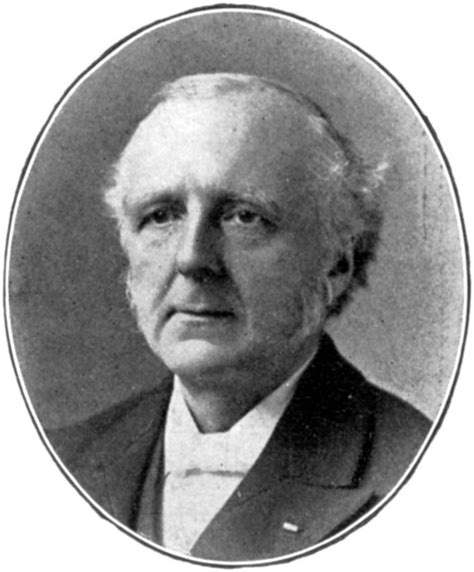A Quote by Neal A. Maxwell
We tend to think of consecration only as yielding up, when divinely directed, our material possessions. But ultimate consecration is the yielding up of oneself to God. Heart, soul, and mind were the encompassing words of Christ in describing the first commandment, which is constantly, not periodically, operative (see Matt. 22:37). If kept, then our performances will, in turn, be fully consecrated for the lasting welfare of our souls (see 2 Ne. 32:9).
Related Quotes
The commandment of God is, that we love Our Lord in all our heart, in all our soul, in all our thought. In all our heart; that is, in all our understanding without erring. In all our soul; that is, in all our will without gainsaying. In all our their ought; that is, that we think on Him without forgetting. In this manner is very love and true, that is work of man's will. For love is a willful stirring of our thoughts unto God, so that it receive nothing that is against the love of Jesus Christ, and therewith that it be lasting in sweetness of devotion; and that is the perfection of this life.
...when we love God, we naturally run to Him-frequently and zealously. Jesus didn't command that we have a regular time with Him each day. Rather, He tells us to 'love the Lord your God with all your heart and with all your soul and with all your mind.' He called this the 'first and greatest commandment' (Matt. 22:37-38). The results are intimate prayer and study of His Word. Our motivation changes from guilt to love.
No matter how many possessions we acquire, they will not provide us with any lasting happiness and freedom. On the contrary, it is often our pursuit of material possessions that causes our problems. If we want ultimate happiness and freedom from suffering, we must engage in the supreme practices of training the mind. There is no other way.
The murders of Newtown are a warning to me - and you. Not a warning to see our schools as defenseless, but to see our souls as depraved. To see our need for a Savior. To humble ourselves in repentance for the God-diminishing bitterness of our hearts. To turn to Christ in desperate need, and to treasure his forgiveness, his transforming, and his friendship.
... we did decide to trust Christ, but the reason we made that decision is that God had first made us spiritually alive. ... God comes to us when we're spiritually dead, when we don't even realize our condition, and gives us the spiritual ability to see our plight and to see the solution in Christ. God comes all the way, not partway, to meet us in our need. When we were dead, He made us alive in Christ. And the first act of that new life is to turn in faith to Jesus.
The Lord Jesus himself proclaims, 'This is My Body.' Before the blessing of the heavenly words something of another character is spoken of; after consecration it is designated 'body'. He himself speaks of his blood. Before the consecration it is spoken of as something else; after the consecration it is spoken of as 'blood'. And you say, 'Amen', that is, 'It is true.' What the mouth speaks, let the mind within confess; what the tongue utters, let the heart feel.
Greatly ought we to rejoice that God dwells in our soul; and more greatly ought we to rejoice that our soul dwells in God. Our soul is created to be God’s dwelling place, and the dwelling of our souls is God, who is uncreated. It is a great understanding to see and know inwardly that God, who is our Creator, dwells in our soul, and it is a far greater understanding to see and know inwardly that our soul, which is created, dwells in God in substance, of which substance, though God, we are what we are.
It is not the multitude of hard duties, it is not the constraint and contention that advance us in our Christian course. On the contrary, it is the yielding of our wills without restriction and without choice to tread cheerfully every day in the path in which Providence leads us. It is to seek nothing, to be discouraged by nothing, to see our duty in the present moment, and to trust all else without reserve to the will and power of God.
When a man is saved by divine grace, he is not wholly cleansed from the corruption of his heart. When we believe in Jesus Christ all our sins are pardoned; yet the power of sin, albeit that it is weakened and kept under by the dominion of the new-born nature which God doth infuse into our souls, doth not cease, but still tarrieth in us, and will do so to our dying day.
But look at the men who have those perverted notions about the grace of Jesus Christ which has come down to us, and see how contrary to the mind of God they are. . . . They even abstain from the Eucharist and from the public prayers, because they will not admit that the Eucharist is the self-same body of our Savior Jesus Christ which flesh suffered for our sins, and which the Father of His goodness raised up again.
The first great commandment was to love the Lord our God with all our hearts, might, mind and strength; and the second was like unto it, to love our neighbor as ourselves. And the best way in the world to show our love for our neighbor is to go forth and proclaim the gospel of the Lord Jesus Christ, of which He has given us an absolute knowledge concerning its divinity.
Do we not see God at work in our circumstances? Dark times are allowed and come to us through the sovreignty of God. Are we prepared to let God do what He wants with us? Are we prepared to be separated from the outward, evident blessings of God? Until Jesus Christ is truly our Lord, we each have goals of our own which we serve. Our faith is real, but it is not yet permanent. And God is never in a hurry. If we are willing to wait, we will see God pointing out that we have been interested only in his blessings, instead of God Himself.
How can we recognize if we're falling into materialism's trap? Christ's words were direct and profound: "Where your treasure is, there your heart will be also" . What we do with our possessions is a sure indicator of what's in our hearts. Jesus is saying, "Show me your checkbook, your credit card statement, and your receipts for cash expenditures, and I'll show you where your heart is." What we do with our money doesn't lie. It is a bold statement to God of what we truly value.
Glad and merry and sweet is the blessed and lovely demeanour of our Lord towards our souls, for he saw us always living in love-longing, and he wants our souls to be gladly disposed toward him . . . by his grace he lifts up and will draw our outer disposition to our inward, and will make us all at unity with him, and each of us with others in the true, lasting joy which is Jesus.



































